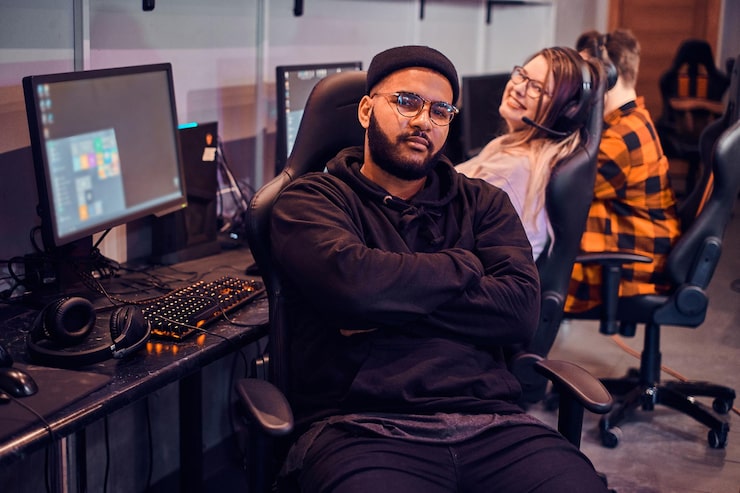Gaming Esports Coaching Tips have become essential for competitive players looking to elevate their skills, teamwork, and in-game decision-making. As esports grows into a professional global industry, players now require structured training, tactical guidance, and psychological support to succeed. Coaching bridges the gap between raw talent and consistent high-level performance, helping individuals and teams achieve results that once seemed impossible. From improving reaction time to developing strategic awareness, effective coaching shapes the foundation of modern competitive gaming.
The Rise of Coaching in Competitive Gaming
In the early days of esports, players relied mostly on intuition and practice. Today, competitive gaming demands more than talent; it requires structured training, data analysis, and team coordination. Coaches emerged to guide players through this complexity, helping them refine mechanics, communication, and in-game strategies. Organizations like Team Liquid, OG, and FaZe Clan have demonstrated how investing in coaching can transform team performance, often leading to championship victories and international recognition.
The Role of an Esports Coach
An esports coach is more than a strategist. They act as mentors, analysts, and motivators, guiding players to perform at their best under pressure. Coaches monitor team dynamics, improve individual gameplay, and maintain morale during high-stress situations. Professional teams often employ multiple coaches, each focusing on specific areas such as gameplay analysis, communication drills, or mental conditioning. This holistic approach ensures players are prepared both technically and psychologically.
Why Gaming Esports Coaching Tips Matter
Structured coaching provides accountability, consistency, and perspective. Players learn to identify weaknesses, refine mechanics, and develop winning strategies. Top-tier teams credit coaching for their growth, citing that guidance and feedback outweigh hours of unstructured practice. For example, when Cloud9 revamped their Valorant training with a new coach, emphasis on map rotations, communication drills, and team strategies led to rapid improvement in tournament performance.
Building Team Chemistry and Trust
Team synergy is a critical element of competitive gaming. Talent alone does not guarantee success if players cannot communicate and coordinate effectively. Coaches teach teams to trust one another, define roles clearly, and remain composed during high-pressure matches. In games like Counter-Strike or League of Legends, coordination often determines match outcomes, making team chemistry a decisive factor in performance.
Developing Strategic Awareness
Esports coaching focuses heavily on strategic thinking. Players learn to anticipate opponents, control key areas of the map, and manage in-game resources efficiently. Coaches use match replays to analyze mistakes, highlight opportunities, and adapt strategies for future games. This level of preparation transforms reactive players into proactive decision-makers, enhancing both individual and team performance.
The Mental Side of Esports Training
Competitive gaming can be mentally exhausting. Coaches play a vital role in helping players manage stress, build confidence, and maintain focus. Mental resilience prevents small errors from escalating into losses. Many professional teams now work with sports psychologists in conjunction with coaches to implement techniques like mindfulness, focus exercises, and positive visualization, ensuring that players stay sharp during critical moments.
Integrating Technology into Coaching
Modern esports coaching leverages technology extensively. Tools like Aim Lab, Overwolf, and replay analysis software provide real-time insights into performance, helping coaches identify patterns and areas for improvement. AI-based analytics platforms measure reaction time, decision-making, and team coordination, allowing coaches to personalize training and maximize efficiency. This data-driven approach ensures steady progress and measurable results.
Applying Coaching Lessons Beyond Gaming
The principles of esports coaching, such as teamwork, communication, and stress management, are transferable beyond the gaming world. Players trained under structured coaching often excel in academic, professional, and social environments. The discipline, problem-solving, and resilience learned through esports can enhance leadership skills and personal growth, demonstrating the broader value of coaching.
Real-Life Success Stories in Esports
Teams like T1 in League of Legends and Natus Vincere in CS:GO showcase the impact of professional coaching. Both teams overcame challenges and inconsistent performance by integrating structured mentorship and strategy development. Individual players, such as TenZ or s1mple, also benefit from personal coaching, refining aim, decision-making, and mental resilience. These examples highlight how coaching directly contributes to competitive success.
The Future of Esports Coaching
The future of esports coaching is closely tied to technological advancements. VR simulations, AI-driven analysis, and immersive training environments will allow coaches to create highly tailored and interactive learning experiences. As esports continues to expand globally, coaching will remain a key factor in player development, pushing competitive gaming to new heights of skill, teamwork, and strategy.
Read also:
dallas mavericks vs houston rockets match player stats
lakers vs golden state warriors match player stats
golden state warriors vs sacramento kings stats
sri lanka national cricket team vs afghanistan national cricket team match scorecard
england cricket team vs india national cricket team timeline
ipl teams
india national cricket team vs england cricket team timeline
